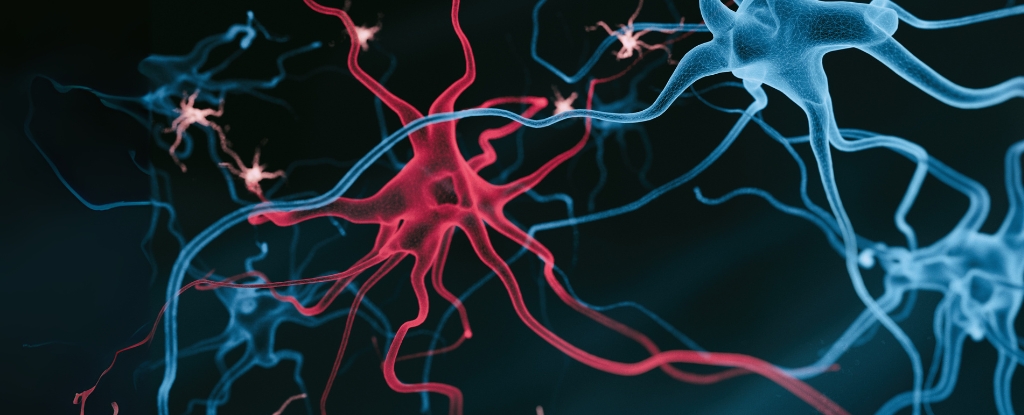Like with many niche treatments, the purported benefits of leucovorin began spreading in the autism community via word of mouth. For decades, some parents have sworn that folinic acid, a dietary supplement, improved their autistic children’s ability to speak and communicate, and some doctors would prescribe leucovorin, a drug with the same key ingredient.
But the drug’s cult status is officially over after President Trump’s recent announcement that the federal government will update leucovorin’s label and approve leucovorin calcium tablets to make the treatment widely available.
The tablets are intended for a subset of people with autism who also have cerebral folate deficiency, a neurological condition that affects the transport of folate — a vitamin important for brain health — into the brain. Some studies have found the two conditions do overlap, including one report suggesting that 38% of people with autism have cerebral folate deficiency.
The evidence for leucovorin currently relies on small studies that show modest improvement in reducing certain autism symptoms. “I have not seen a remarkable response to leucovorin/folinic acid, but I think it has a good place in treatment of ASD,” said Robert Hendren, a retired autism researcher at the University of California, San Francisco, who conducted one of those studies.
STAT caught up with Hendren, who said his 2020 trial of 12 children “showed very little change” after they took leucovorin calcium for 12 weeks. Prior to his stint at UCSF, Hendren was the executive director of the MIND Institute at the University of California, Davis. When he was hired, local parents of autistic kids told him to “leave no stone unturned” about what might help their kids and to “keep an open mind,” including looking into injectable vitamin B12 and eventually leucovorin.
This interview has been edited for clarity and length.
You spent decades researching autism before turning to leucovorin just before you retired. What drew your eye?
I first got interested when Richard Frye — who’s done a lot of the leucovorin studies — suggested to me that we submit a grant for B12 and leucovorin, or folinic acid. It didn’t get funded, but it made me think more about what to do with it. We were doing metabolomics studies that look at how the different pathways of the body metabolize different things related to oxidative stress or inflammation [which are implicated in autism].
So I thought it’d be interesting to do a study of leucovorin and see what pathways are affected and whether that was related to who did well and who didn’t. We did a study at a school for children with autism called the Oak Hill School that’s here in San Anselmo, California, and were giving kids leucovorin.
It was a tiny study, only 12 kids. What did you find?
There was not a clear improvement in the leucovorin group, but there was a subgroup that seemed to do better. What Richard Frye’s studies had shown up to this point and have shown afterwards is that there is a subgroup that might show improvement in speech and language with leucovorin. We did see some really minor improvements in speech and language with these kids that were taking leucovorin.
What studies need to be done to solidify Fyre’s findings?
For leucovorin, I think it could be testing for cerebral folate deficiency at the beginning and if that’s the case, then supplementing them with leucovorin and seeing how much benefit there is. My experience and what I can read in the literature is, even if they have cerebral folate deficiency, their response to leucovorin or folinic acid is going to be modest. It’s not gonna be great. It’s not gonna cure autism.
It’s not gonna make them speak or fully be able to communicate, but it’ll make things a little bit better. I think that’s where the field is increasingly going and needing to go: Autism is a really complex disorder that has a number of genes that are involved and they’re not the same ones for every person with autism, but there are environmental interactions that occur at particular points — inflammation or oxidative stress or whatever.
Did your study affect parents’ belief in leucovorin’s efficacy?
None of the parents in the study that we did at Oak Hill School continued to [have their kids] take leucovorin, but occasionally I find a family there that is taking it — maybe 3 or 4 out of the 60 families. I asked them if they think it’s helping. Mostly, they say, I don’t know, but they want to try anything that might help their child.
I’d say to them, “Well, you know that there isn’t a great deal of evidence, but if you want to try it, it’s OK with me.” It has a good side effect profile. It’s not like we’re doing anything dangerous unless it would be at a dosage way beyond the ones that have been tried. I had quite a number of families that would later come and try leucovorin, but there were very, very few that showed any improvement. In my experience, most of them quit doing it.
What were you hearing from parents or from other researchers that made you look into supplements and other nontraditional approaches to treating the condition?
There was a group called DAN, Defeat Autism Now, and the parents at the MIND Institute said, “Go visit them and learn from them.” They talked about supplements, but they didn’t really do very good research, so they had testimonials about how it worked and it was hard to know who it worked for and why it worked. It’s hard to find funding for supplements because a pharmaceutical company is not gonna be able to get the money back from doing the study on something that they can’t put a patent on.
I wanted to understand who it worked for and why and I learned that it worked for some people and it didn’t work for others and I think that’s what we found with the leucovorin study.
Tell me more about your initial meetings with DAN.
There was a guy there, Bernie Rimland. I was impressed with his coming out and saying autism isn’t caused by a cold, rejecting mother, which was kind of the prevalent thing in the 1980s, 1990s. I thought he had good ideas and I’m currently on the board of the Autism Research Institute, which he founded.
I think the kind of autism that Bernie and DAN and others were talking about were people with autism [with high support needs], that they weren’t the people that were going to Harvard or becoming the head of major corporations. This, and with understanding more about what autism was and that it was a neurodevelopmental disorder and not just a brain disorder, they thought maybe there would be things that could be done to help the body function better. Bernie had those ideas and there wasn’t good research being done on it, and that’s what led people to form the MIND Institute.
As a longtime autism researcher who knows the history of refrigerator moms, how did you feel about Trump asserting a much stronger link between Tylenol use during pregnancies and autism than what the research shows?
I’m really happy that Trump and RFK Jr. are interested in autism and that they’re wanting to find the cause and effective treatments. I applaud that. I just don’t applaud them appointing themselves as experts, and then telling mothers what to do and that they should feel guilty if their child has autism and they took Tylenol when they were pregnant. I just — there’s no evidence for that.
We definitely have good science that says, “we shouldn’t use … aspirin or ibuprofen [during pregnancy].” But there hasn’t been that literature on acetaminophen. There is no way that the mother, as Trump said, should “tough it out” and go through that high fever. I’d worry that the cause-and-effect part was the fever, not the acetaminophen.
I feel like what took us out of the icebox mom theory was good science and good research. To have President Trump say something that has nothing to do with the science — it’s not looking at all like it’s cause and effect [with acetaminophen use during pregnancy and autism]. And then RFK has been pushing vaccines and now pushing these other things for a long time with no real evidence.
What do you think of Kennedy’s focus on the disproven hypothesis that vaccines cause autism?
I have worked with him before. He presented at our Commonwealth Club here in San Francisco and I hosted it and talked with him. I was impressed. He was bright, he can be charming, and he’s passionate about what he believes in. But he’s not a scientist. He doesn’t think like a scientist. He doesn’t do science, he doesn’t do medicine. And the same with Trump, it just seems kind of like, “Oh my gosh, are we gonna go back to saying that we can say what happens to autism without doing good science?”
I don’t think we’re gonna find leucovorin as a cure for autism or even a real significant treatment, but I know Kennedy and Trump promised that they would have the cause of autism and a cure for it by September, and I guess [leucovorin] was the best they could do.
Source link


